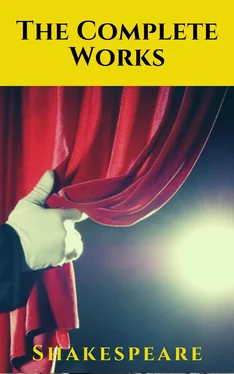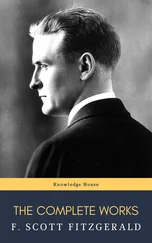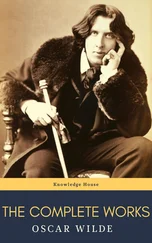Ros. Yes, one, and in this manner. He was to imagine me his love, his mistress; and I set him every day to woo me. At which time would I, being but a moonish youth, grieve, be effeminate, changeable, longing and liking, proud, fantastical, apish, shallow, inconstant, full of tears, full of smiles; for every passion something, and for no passion truly any thing, as boys and women are for the most part cattle of this color; would now like him, now loathe him; then entertain him, then forswear him; now weep for him, then spit at him; that I drave my suitor from his mad humor of love to a living humor of madness, which was, to forswear the full stream of the world, and to live in a nook merely monastic. And thus I cur’d him, and this way will I take upon me to wash your liver as clean as a sound sheep’s heart, that there shall not be one spot of love in’t.
Orl. I would not be cur’d, youth.
Ros. I would cure you, if you would but call me Rosalind, and come every day to my cote and woo me.
Orl. Now, by the faith of my love, I will. Tell me where it is.
Ros. Go with me to it, and I’ll show it you; and by the way, you shall tell me where in the forest you live. Will you go?
Orl. With all my heart, good youth.
Ros. Nay, you must call me Rosalind. Come, sister, will you go?
Exeunt.
¶
Enter Clown [Touchstone], Audrey; and Jaques [behind].
Touch. Come apace, good Audrey; I will fetch up your goats, Audrey. And how, Audrey? am I the man yet? Doth my simple feature content you?
Aud. Your features, Lord warrant us! what features?
Touch. I am here with thee and thy goats as the most capricious poet, honest Ovid, was among the Goths.
Jaq. [Aside.] O knowledge ill-inhabited, worse than Jove in a thatch’d house!
Touch. When a man’s verses cannot be understood, nor a man’s good wit seconded with the forward child, understanding, it strikes a man more dead than a great reckoning in a little room. Truly, I would the gods had made thee poetical.
Aud. I do not know what ‘poetical’ is. Is it honest in deed and word? Is it a true thing?
Touch. No, truly; for the truest poetry is the most feigning, and lovers are given to poetry; and what they swear in poetry may be said as lovers they do feign.
Aud. Do you wish then that the gods had made me poetical?
Touch. I do, truly; for thou swear’st to me thou art honest. Now if thou wert a poet, I might have some hope thou didst feign.
Aud. Would you not have me honest?
Touch. No, truly, unless thou wert hard-favor’d; for honesty coupled to beauty is to have honey a sauce to sugar.
Jaq. [Aside.] A material fool!
Aud. Well, I am not fair, and therefore I pray the gods make me honest.
Touch. Truly, and to cast away honesty upon a foul slut were to put good meat into an unclean dish.
Aud. I am not a slut, though I thank the gods I am foul.
Touch. Well, prais’d be the gods for thy foulness! sluttishness may come hereafter. But be it as it may be, I will marry thee; and to that end I have been with Sir Oliver Martext, the vicar of the next village, who hath promis’d to meet me in this place of the forest and to couple us.
Jaq. [Aside.] I would fain see this meeting.
Aud. Well, the gods give us joy!
Touch. Amen. A man may, if he were of a fearful heart, stagger in this attempt; for here we have no temple but the wood, no assembly but horn-beasts. But what though? Courage! As horns are odious, they are necessary. It is said, “Many a man knows no end of his goods.” Right! many a man has good horns, and knows no end of them. Well, that is the dowry of his wife, ’tis none of his own getting. Horns? even so. Poor men alone? No, no, the noblest deer hath them as huge as the rascal. Is the single man therefore bless’d? No, as a wall’d town is more worthier than a village, so is the forehead of a married man more honorable than the bare brow of a bachelor; and by how much defense is better than no skill, by so much is a horn more precious than to want.
Enter Sir Oliver Martext.
Here comes Sir Oliver. Sir Oliver Martext, you are well met. Will you dispatch us here under this tree, or shall we go with you to your chapel?
Sir Oli. Is there none here to give the woman?
Touch. I will not take her on gift of any man.
Sir Oli. Truly, she must be given, or the marriage is not lawful.
Jaq. [Discovering himself.] Proceed, proceed. I’ll give her.
Touch. Good even, good Master What-ye-call’t; how do you, sir? You are very well met. God ’ild you for your last company. I am very glad to see you. Even a toy in hand here, sir. Nay, pray be cover’d.
Jaq. Will you be married, motley?
Touch. As the ox hath his bow, sir, the horse his curb, and the falcon her bells, so man hath his desires; and as pigeons bill, so wedlock would be nibbling.
Jaq. And will you (being a man of your breeding) be married under a bush like a beggar? Get you to church, and have a good priest that can tell you what marriage is. This fellow will but join you together as they join wainscot; then one of you will prove a shrunk panel, and like green timber warp, warp.
Touch. [Aside.] I am not in the mind but I were better to be married of him than of another, for he is not like to marry me well; and not being well married, it will be a good excuse for me hereafter to leave my wife.
Jaq. Go thou with me, and let me counsel thee.
[Touch.]
Come, sweet Audrey,
We must be married, or we must live in bawdry.
Farewell, good Master Oliver: not
“O sweet Oliver,
O brave Oliver,
Leave me not behind thee;”
but
“Wind away,
Be gone, I say,
I will not to wedding with thee.”
[Exeunt Jaques, Touchstone, and Audrey.]
Sir Oli. ’Tis no matter; ne’er a fantastical knave of them all shall flout me out of my calling.
Exit.
¶
Enter Rosalind and Celia.
Ros. Never talk to me, I will weep.
Cel. Do, I prithee, but yet have the grace to consider that tears do not become a man.
Ros. But have I not cause to weep?
Cel. As good cause as one would desire, therefore weep.
Ros. His very hair is of the dissembling color.
Cel. Something browner than Judas’s. Marry, his kisses are Judas’s own children.
Ros. I’ faith, his hair is of a good color.
Cel. An excellent color. Your chestnut was ever the only color.
Ros. And his kissing is as full of sanctity as the touch of holy bread.
Cel. He hath bought a pair of cast lips of Diana. A nun of winter’s sisterhood kisses not more religiously, the very ice of chastity is in them.
Ros. But why did he swear he would come this morning, and comes not?
Cel. Nay certainly there is no truth in him.
Ros. Do you think so?
Cel. Yes, I think he is not a pick-purse nor a horse- but for his verity in love, I do think him as concave as a cover’d goblet or a worm-eaten nut.
Ros. Not true in love?
Cel. Yes, when he is in—but I think he is not in.
Ros. You have heard him swear downright he was.
Cel. ‘Was’ is not ‘is.’ Besides, the oath of [a] lover is no stronger than the word of a tapster; they are both the confirmer of false reckonings. He attends here in the forest on the Duke your father.
Читать дальше












